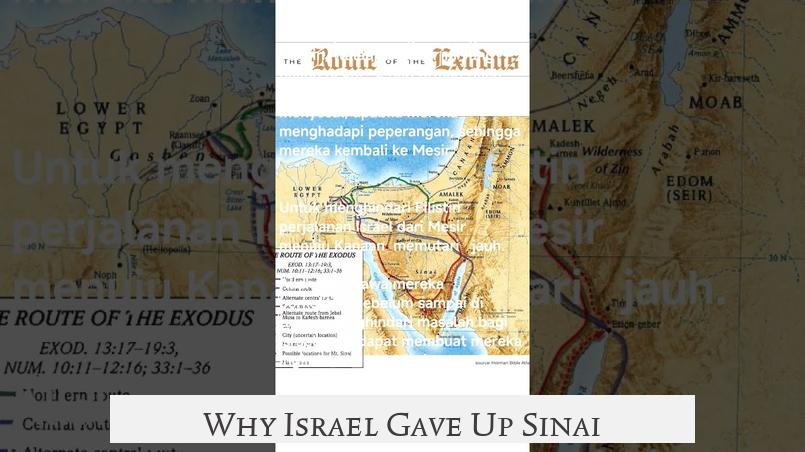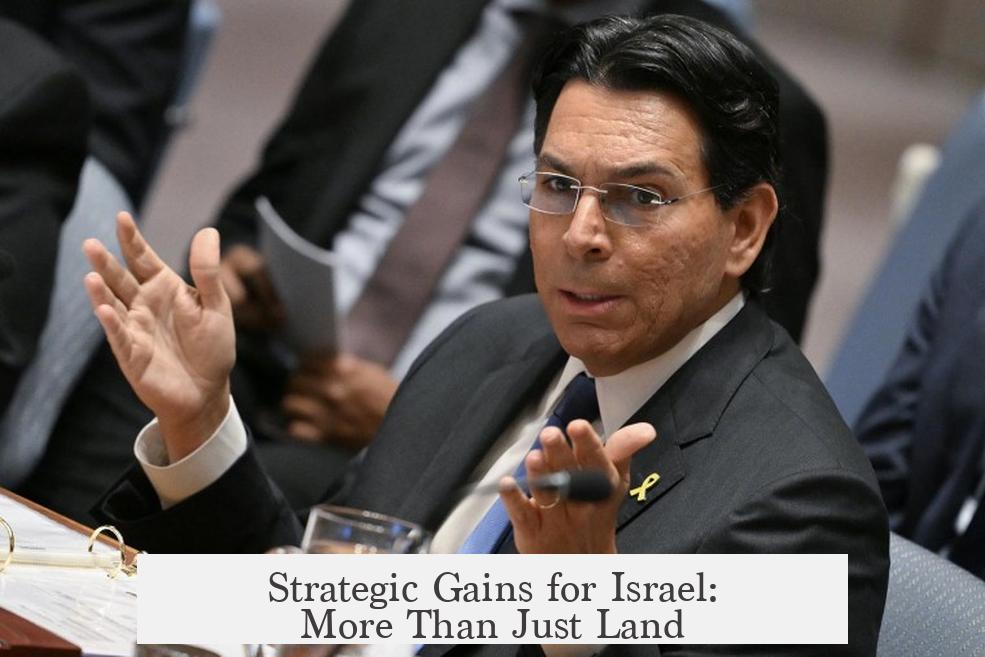Israel gave up Sinai primarily to secure lasting peace with Egypt and prevent further wars. The decision resulted from the shifting realities after the 1973 war, diplomatic efforts, and strategic calculations influenced by regional and global politics.
Before the 1973 war, Israel had no intention of returning any land captured in the 1967 Six-Day War. Israeli leadership believed the Arab states were weak, especially after their 1967 defeat. They rejected negotiations that could involve relinquishing territory.
However, the Yom Kippur War in 1973 altered this viewpoint dramatically. Egypt’s surprise attack over the Bar-Lev Line exposed Israel’s vulnerability and willingness to fight. Despite regaining military advantage before the ceasefire, Israel recognized that Egypt would not stop pushing until Sinai was returned.
Egyptian President Anwar Sadat played a key role. He demonstrated readiness for negotiations, contrasting with the general Arab skepticism. This willingness opened the door to diplomatic talks mediated by the United States.
The Cold War context also mattered. Egypt was allied with the USSR, but the US sought to bring it into its sphere of influence. Facilitating peace between Israel and Egypt helped the US weaken Soviet influence in the Middle East.
For Israel, returning Sinai came with strategic benefits. Egypt held the largest Arab military force and shared a border with Israel. Neutralizing this threat by peace reduced the chance of future wars and improved regional security.
It also shaped broader regional dynamics. Egypt’s peace agreement led to its boycott by other Arab states and weakened pan-Arab unity. Over time, this paved the way for other normalization agreements between Israel and Arab countries like Jordan, the UAE, Sudan, and Morocco.
- Israel’s 1973 war experience showed vulnerability and the cost of conflict.
- Egypt’s willingness to negotiate under Sadat was crucial.
- US influence in Cold War politics pushed for peace to reduce Soviet ties with Egypt.
- Peace with Egypt neutralized a major military threat on Israel’s border.
- The agreement altered Arab-Israeli relations, allowing gradual regional normalization.
Why Israel Gave Up Sinai?

Israel gave up the Sinai Peninsula primarily to secure lasting peace with Egypt after the costly 1973 Yom Kippur War, which dramatically shifted Israeli perspectives on security and diplomacy. This move wasn’t just about territory; it was a groundbreaking change in strategy shaped by military reality, political courage, and international maneuvering.
The Wake-Up Call: 1973 War and Changed Israeli Mindset
Before 1973, Israel was riding high on the victories of the 1967 Six-Day War, which delivered a stunning blow to its neighbors and gave Israel control over vast new territories, including the Sinai Peninsula.
Israelis largely viewed the Arabs as no match, dismissing them as disorganized and incapable of posing serious threat or military challenges. This confidence meant no deals that meant handing over an inch of land. Negotiations were dead on arrival.
But the Yom Kippur War came as a jolt. Egypt’s surprise attack across the Bar-Lev Line, long considered nearly impregnable, rattled Israeli confidence. The Egyptian army fought fiercely, inflicting real panic among Israeli forces. Suddenly, the narrative changed. Egypt was no pushover. Peace was not just a dream but a necessity.
It was clear: as long as Israel held Sinai, Egypt would keep fighting to regain it. The prospect of constant war was not an option.
Sadat’s Bold Gamble: Egypt’s Willingness to Negotiate
Egypt’s president, Anwar Sadat, pulled a move few expected. Despite popular opposition at home, Sadat showed readiness to negotiate peace with Israel. He realized that relentless conflict wasn’t benefiting anyone and sought a breakthrough.
For Israel, Sadat’s openness was a surprise gift wrapped in opportunity. Backed by the United States, these peace talks gained momentum. More than blood and bullets, diplomacy became the new battleground.
The US Cold War Chessboard: Strategic Influence Plays
The United States played a huge role behind the scenes. During the Cold War, every global move also served as a chess move against the Soviet Union.
At that time, Egypt was a Soviet ally, wielding significant influence in the Arab world. The US saw peace between Israel and Egypt as a way to pull Egypt away from the Soviet orbit and increase American influence in the Middle East.
You could say the Sinai was more than a desert—it was the proverbial pawn in a high-stakes geopolitical game. The Camp David Accords of 1978, brokered with US President Jimmy Carter’s help, reflected this multi-layered strategy.
Strategic Gains for Israel: More Than Just Land

For Israel, giving up Sinai was a calculated trade-off. It meant losing some territory, but it gained a stable, peaceful border with Egypt, the most powerful Arab military force.
Neutralizing Egypt as a threat was huge. Without the dream of regaining Sinai keeping them at war, Israel reduced the risk of a large-scale conflict on its southern border indefinitely.
The repercussions rippled across the Arab world. Egypt faced boycotts and isolation for striking peace with Israel, seen by other Arabs as abandoning the Palestinian cause. But, ironically, this move fractured Arab unity and opened doors for further peace deals. Jordan, the UAE, Sudan, and Morocco followed suit in their own paths toward normalization with Israel.
Today, the peace between Israel and Egypt stands as the longest-lasting in the region. It’s a model showing that trading land for peace can, under the right conditions, bring stability and progress.
What Can We Learn From Israel’s Sinai Decision?
The story offers several key takeaways for international relations and conflict resolution:
- Military victories don’t guarantee permanent security. Underestimating an opponent can backfire dramatically.
- Peace often requires hard, unpopular choices. Sadat’s courage to negotiate despite domestic opposition was pivotal.
- Great powers influence local conflicts. US involvement in brokering peace highlights how global politics shape regional outcomes.
- Stability brings broader benefits. Neutralizing Egypt’s hostility opened doors for Israel’s acceptance by other Arab nations.
In a nutshell, Israel’s decision to give up Sinai wasn’t just a land swap; it was a strategic masterstroke blending military realities, political will, and international diplomacy.
It makes you wonder—how different would the Middle East look today without that shift in 1973? Peace may be elusive, but the Sinai deal shows that it is possible when daring leaders and pragmatic minds come together.
For the Curious:
| Event | Year | Impact |
|---|---|---|
| Six-Day War | 1967 | Israel captures Sinai, gains confidence; considers Arabs weak |
| Yom Kippur War | 1973 | Egypt surprises Israel; changes Israeli view on peace necessity |
| Camp David Accords | 1978 | Israel and Egypt agree peace; Israel agrees to return Sinai |
| Sinai Return Completed | 1982 | Full Israeli withdrawal; peaceful border established with Egypt |
Curious about more diplomatic feats or tricky peace processes? Stay tuned!
Why did Israel change its stance and agree to give up the Sinai after the 1973 war?
Israel shifted its view following the 1973 war when it became clear Egypt would not stop fighting without getting Sinai back. The surprise Egyptian attack also showed that Israel could face tough resistance, prompting a desire to avoid future wars.
How did Egypt’s readiness to negotiate impact Israel’s decision to return Sinai?
Egypt, led by President Sadat, was willing to negotiate peace despite some opposition at home. This opened the door for Israel to strike a deal, motivated by the hope to end hostilities with a strong neighboring country.
What role did the United States play in Israel giving up the Sinai?
The US influenced the process heavily. During the Cold War, the US wanted Egypt out of Soviet influence. Supporting peace between Israel and Egypt helped align Egypt closer to the US sphere of influence.
What were the strategic advantages for Israel in returning the Sinai?
By making peace with Egypt, Israel removed its biggest Arab military threat. This helped stabilize Israel’s borders and paved the way for better relations with other Arab nations over time.
Did giving up Sinai affect Israel’s standing with other Arab countries?
Yes. Egypt faced boycotts for the peace deal as it was seen as abandoning the Palestinians. However, the treaty weakened Arab unity against Israel and eventually led to broader acceptance of Israel from Arab states.




